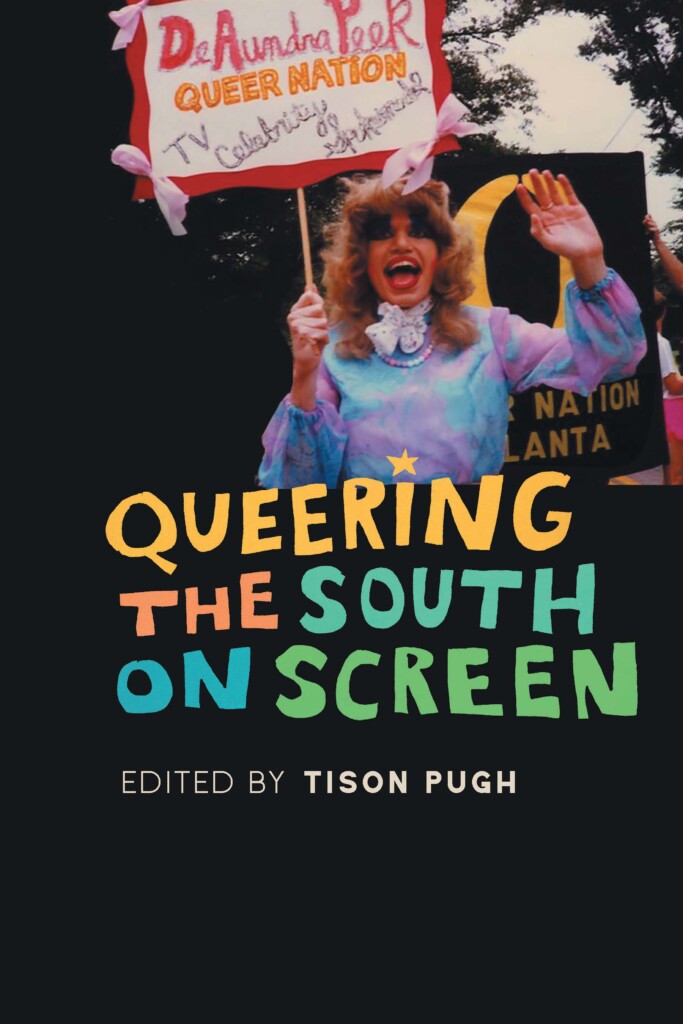A letter from Prof. Jeff Solomon about his Reynolds Leave
Hello, Department of English! I have missed you all—my colleagues, and our majors and minors—while I have been on research leave. I feel like I have been away for a very long time, and I was sorry to miss the last year of our seniors. Since some of you have emailed me to ask WHAT ARE YOU DOING ON YOUR LEAVE?, I thought I would tell you here.
The leave has been very helpful for my new book project, and I am grateful for it. Most first scholarly books evolve from a graduate dissertation, which has been extensively critiqued by a committee of professors. Usually, the challenge of a second book is to develop a new project without this kind of support system, and the leave made this possible for me.

I knew when I began that I wanted to work on classic camp films, but I was not sure exactly what I wanted to say. These are films that have become integral to queer culture, sometimes because they are about queer folks, but more frequently because they are about other oppressed people whom queers can relate to, and because way they are told and the way that they look somehow speaks to a queer population. My first goal was to familiarize myself with the current literature on these questions. To do this actively, I wrote a couple of book reviews, one of which has come out, and one that is still in the editorial process. I also published an article of my own, “Down South in Peckerwood: Auntie Mame and Anti-Mom,” on a classic camp film, Auntie Mame from 1958. Auntie Mame is an unusual camp film, as it is not bitter nor over the top (well, maybe a little bit over the top. Well maybe a little bit more), and yet has maintained its queer appeal for more than half a century. I started working on Auntie Mame after I moved to Winston-Salem, and as such, I ended up writing about the South—not the “real” South, but the extraordinarily fake NY/Hollywood version found in the film. I finished revising the article while on leave, and it came out in May 2020 in the anthology Queering the South on Screen.
While working on Auntie Mame, I started looking in queer archives to see if I could find any quantifiable records of what films the queer community watched—in queer film festivals, in theatres in queer neighborhoods—or frequently referenced, either in memoirs, or in, say, drag queen performances. I started focusing on mass-market films that had been adopted by the queer population, and then on gay men in particular, since I found so much documentation that these men were especially attached in mass-market artifacts, such as disco and Hollywood musicals. Consider Judy Garland. Her death may have sparked the Stonewall Rebellion, but she herself was relentlessly heterosexual (this girl DATED), and her production both as an actress and a singer was firmly in the mainstream.
This queer interest contradicts common assumptions that oppressed groups are drawn to the obscure and un-commercial: to what are sometimes called “hidden transcripts,” and what is sometimes called “the underground.” When we talk about gay men at mid-century, we often discuss “the gay underground,” and in terms of cinema, experimental filmmakers like Andy Warhol and Kenneth Anger. But, of course, most queers, like most people everywhere, are not “sophisticated” and do not live in a metropolis where they can access the “underground.” Teen Jeff Solomon was about as far above ground as one could get! Queer engagement with the mass market still held true at the end of the twentieth century. Consider how television shows like The Golden Girls, which was not about gay men, had at least as much if not more of a gay audience than those with overt gay content, like Will and Grace. (Yes, undergraduates, I realize all these television shows pre-date you, but is that my fault? No.) These questions about the queer appeal of the mass market ended up organizing the research project, which is now called The Gay Overground.
I spent most of the leave in Los Angeles, which has a great number of film archives and some important queer archives. I also took some trips to archives in other cities, at least until the city and then the state instituted stay-at-home orders. It was great to be back in LA, from whence I came, but I have missed my friends in Winston, and I am looking forward to being back at Wake and having students again. Hello in advance, and I look forward to seeing everyone in a few months!
Categories: Faculty News
